Every discussion among residents or at the policy level concerning mobility and commute infrastructure is often about the reduction of private, motorised vehicles on the road and the increase of public transport availability and accessibility. However, the government seems to have missed the point as it is committed to constructing flyovers and underpasses, and widening roads to prioritise cars, much to the chagrin of concerned citizens and mobility experts.
In the latest scheme of things, Bruhat Bengaluru Mahanagara Palike’s (BBMP) decision to fell nearly 54 trees in front of Palace Grounds to widen Bellary road has drawn the ire of citizens, activists and environmentalists alike. The government has envisioned the exercise of widening Bellary road to yield a four-lane road, due to which more than 50 trees in the 630-metre stretch will be chopped down.
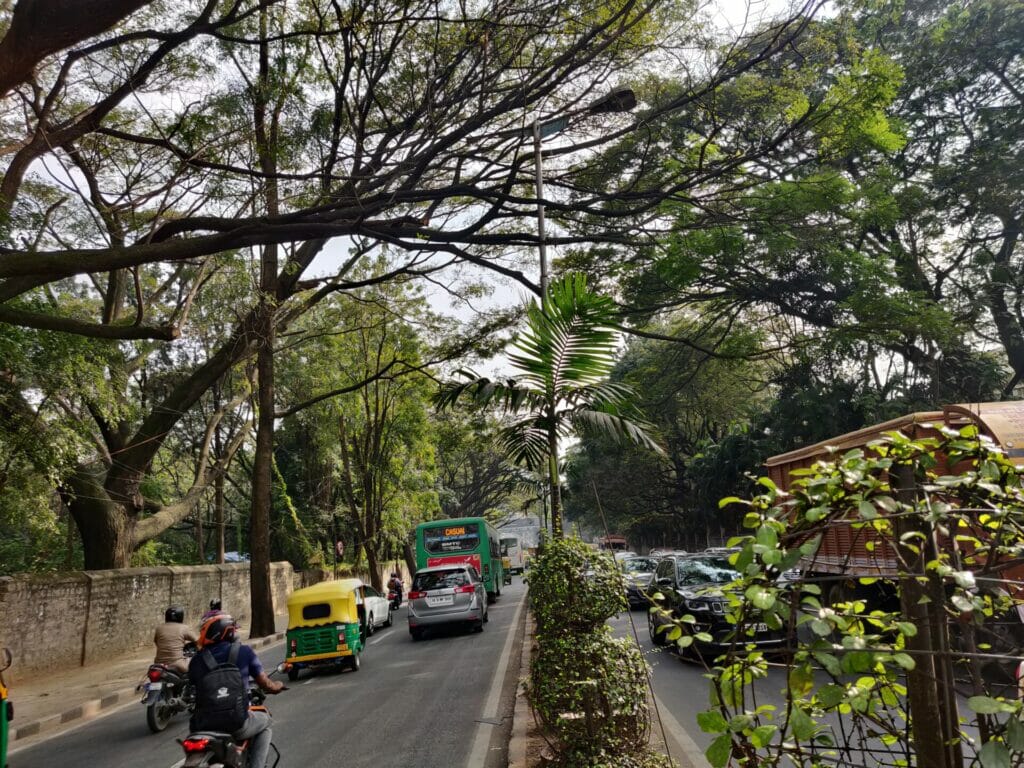
Referring to the road from Windsor Manor junction to Hebbal, in an article, Special commissioner (Traffic) M. A. Saleem said it has “poor road symmetry”, which results in traffic congestion and increases travel time for commuters.
Will road widening solve traffic management?
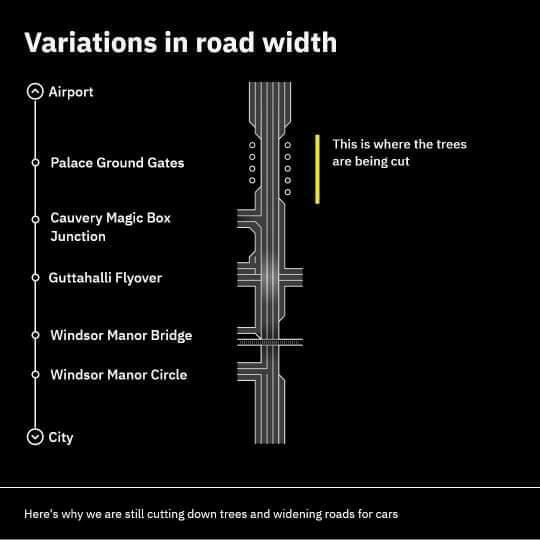
There are already multiple underpasses, flyovers and skywalks built along this stretch, which means this isn’t the first intervention that is being carried out in terms of traffic management. If none of them has yielded results, would road widening be another shot in the dark?
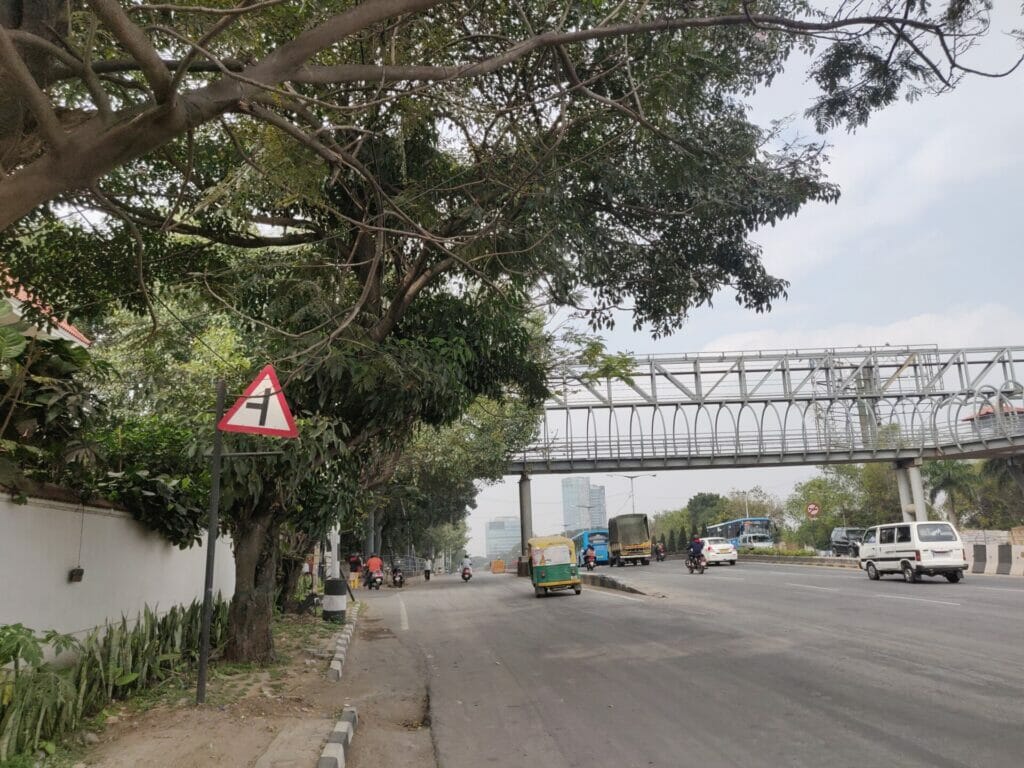
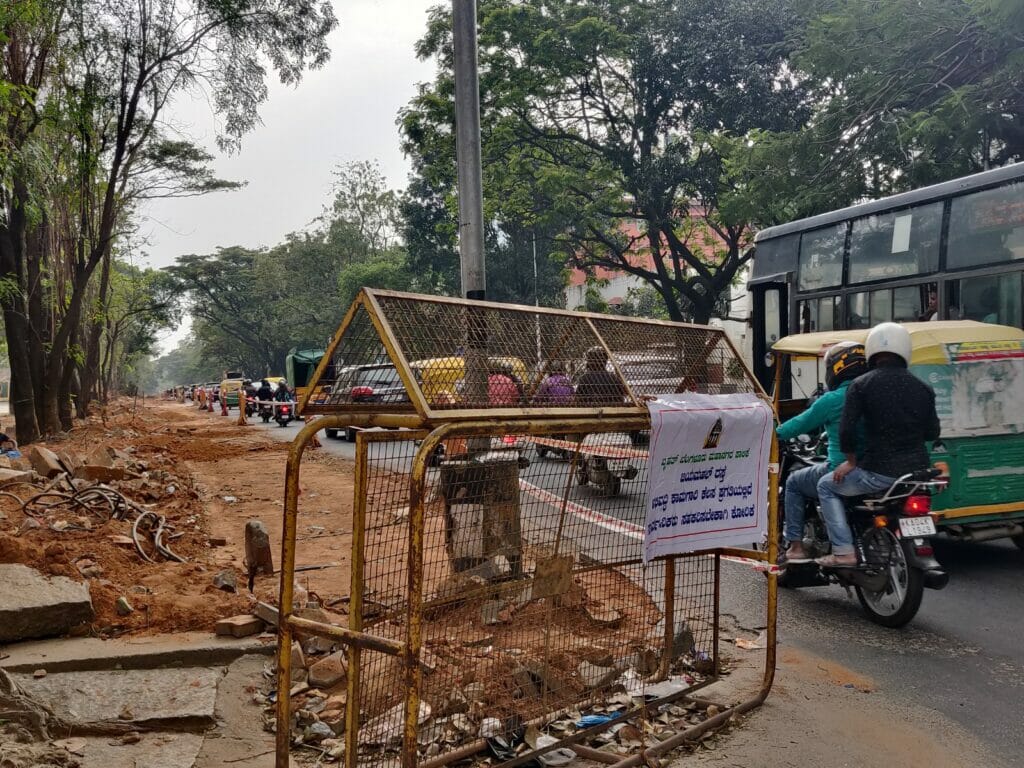
The road remains jammed with ambulances and vehicles of VIPs (often accompanied by convoys) at all hours of the day, as they ply to the Central Business District (CBD) areas from their residences in Sadashivanagar, RT Nagar, and further north of Bengaluru. Chief Minister Basavaraj Bommai’s residence in RT Nagar is within a kilometre’s distance of Mekhri circle.
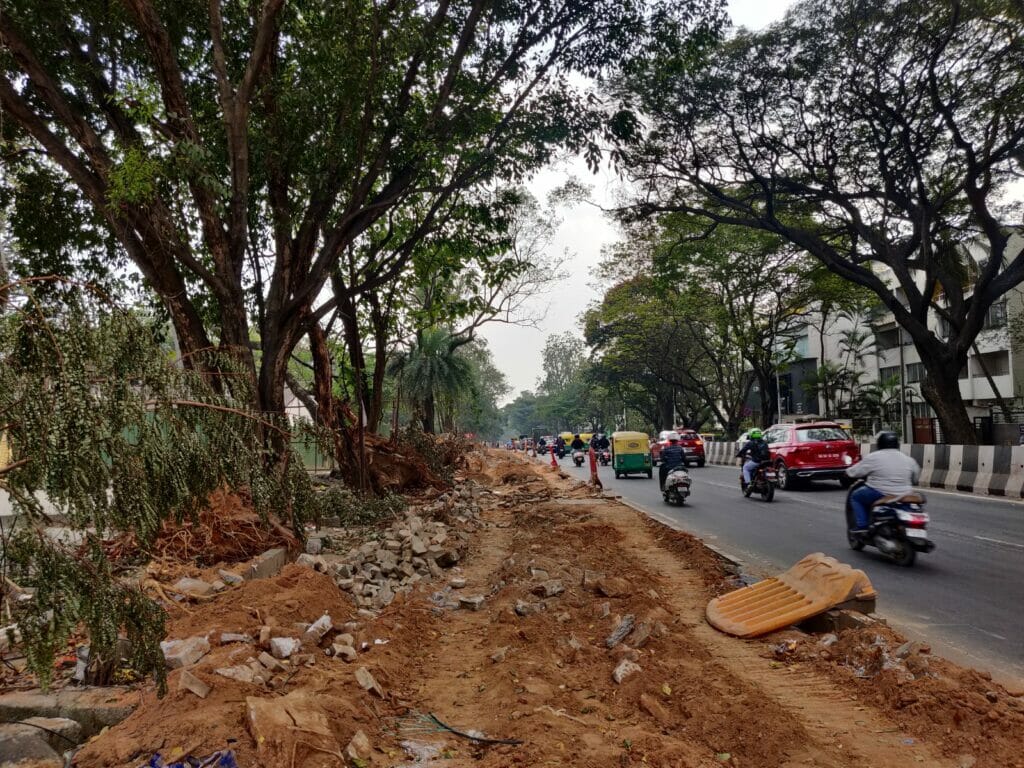
Bellary road measurements
Quoting the Comprehensive Development Plan, a traffic impact study had calculated the measurements of Bellary road to be 67 metres wide with a two metre-wide pedestrian footpath, which was raised by 200 millimetres above the carriage way, and a two metre wide shoulder on both sides of the road.
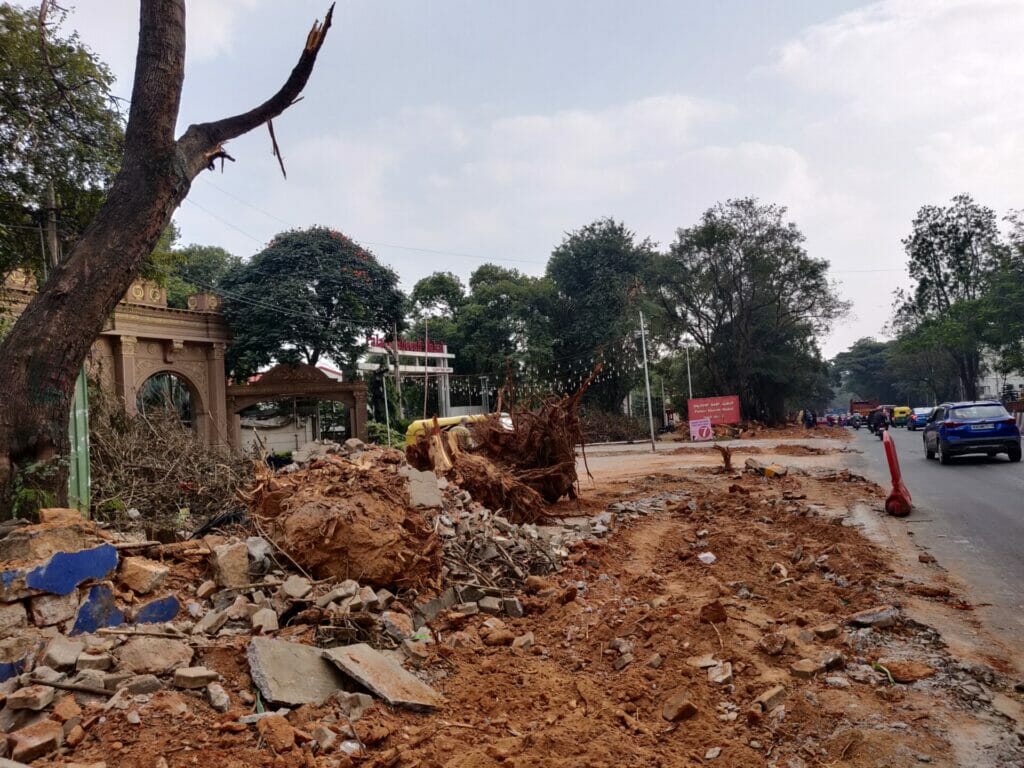
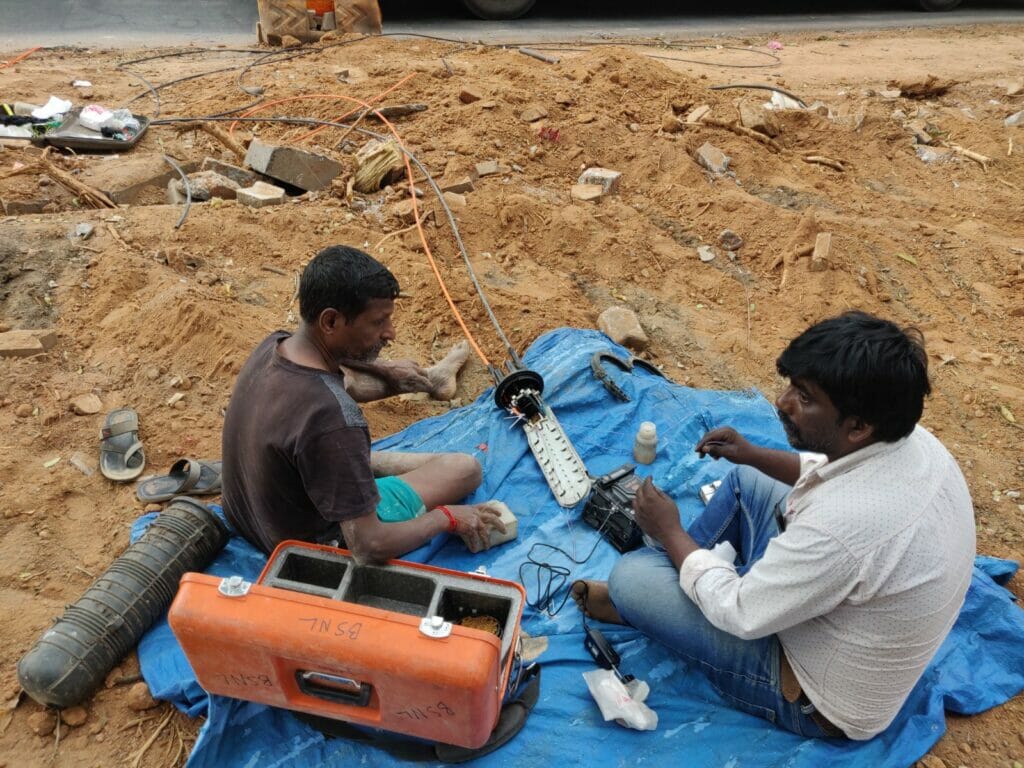
The municipal body’s official memorandum, dated May 10 2022, sought permission for the removal and translocation of trees over the 2.19 kilometre stretch of Bellary road (NH7). Through the letter, the Assistant Executive Engineer (AEE), Project Division, Yelahanka zone, BBMP, requested permission to clear 148 trees, starting from Royal International School until Vidyashilpi Academy. The AEE has stated that the project is in public interest as the current 30-feet road will be widened to an extent of 60 feet.
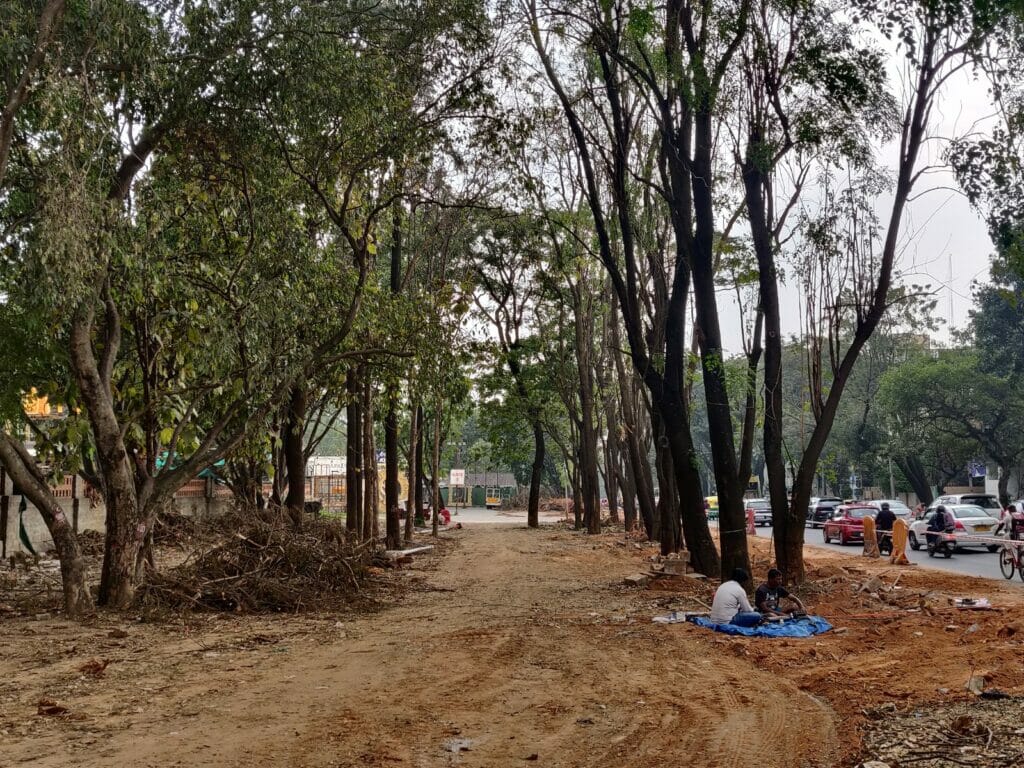
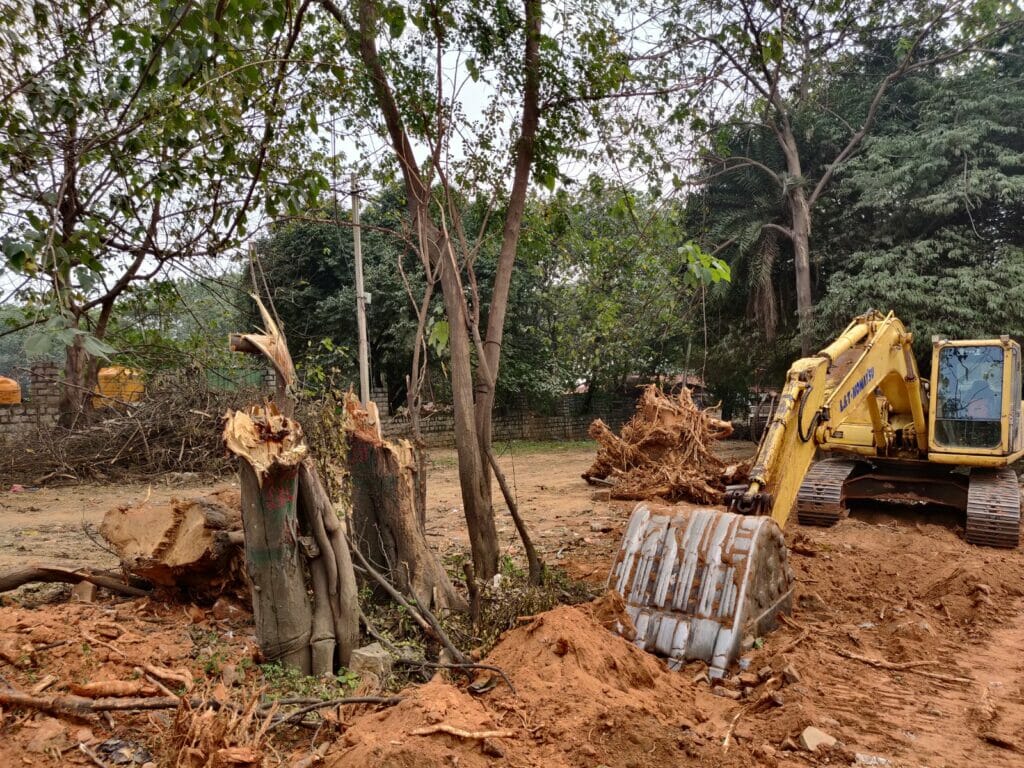
Read more: How climate change is threatening tree species in Bengaluru
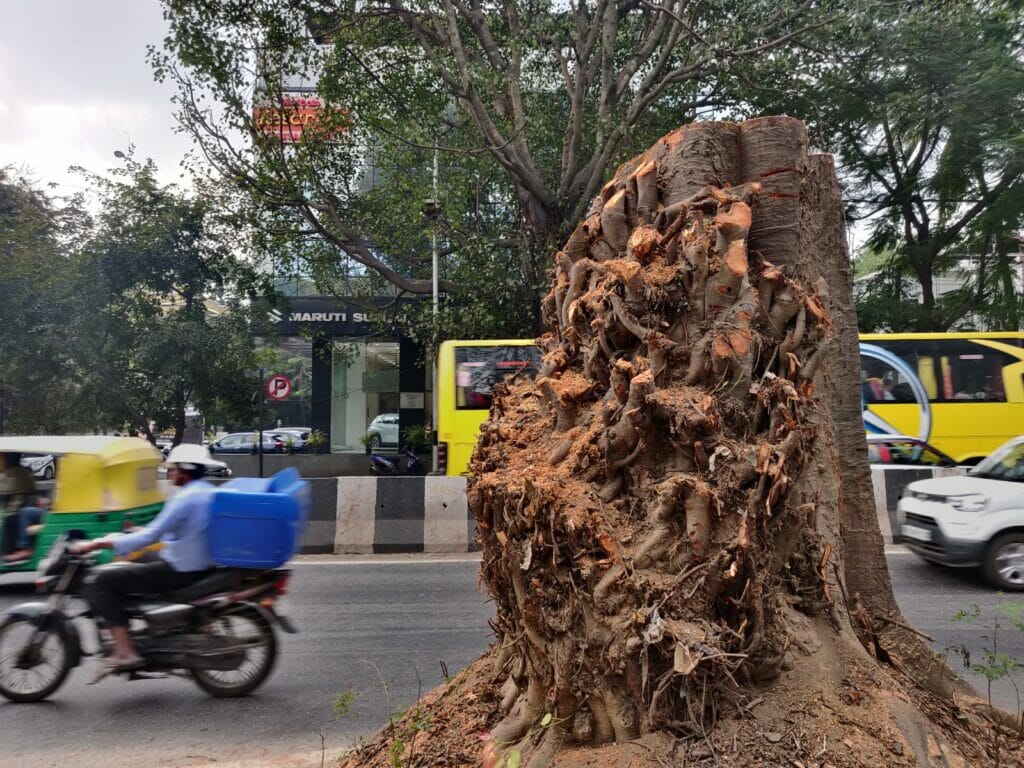
Citizens can raise objections to tree felling
In December 2022, Citizen Matters reported on how it has been a long struggle to preserve trees in the city as Bengaluru lost 78% of its vegetation in the last four decades. The report also mentioned how any agency, if it wants to cut 50 or more trees for any project, are required to file an application to the Tree Officer of the BBMP.
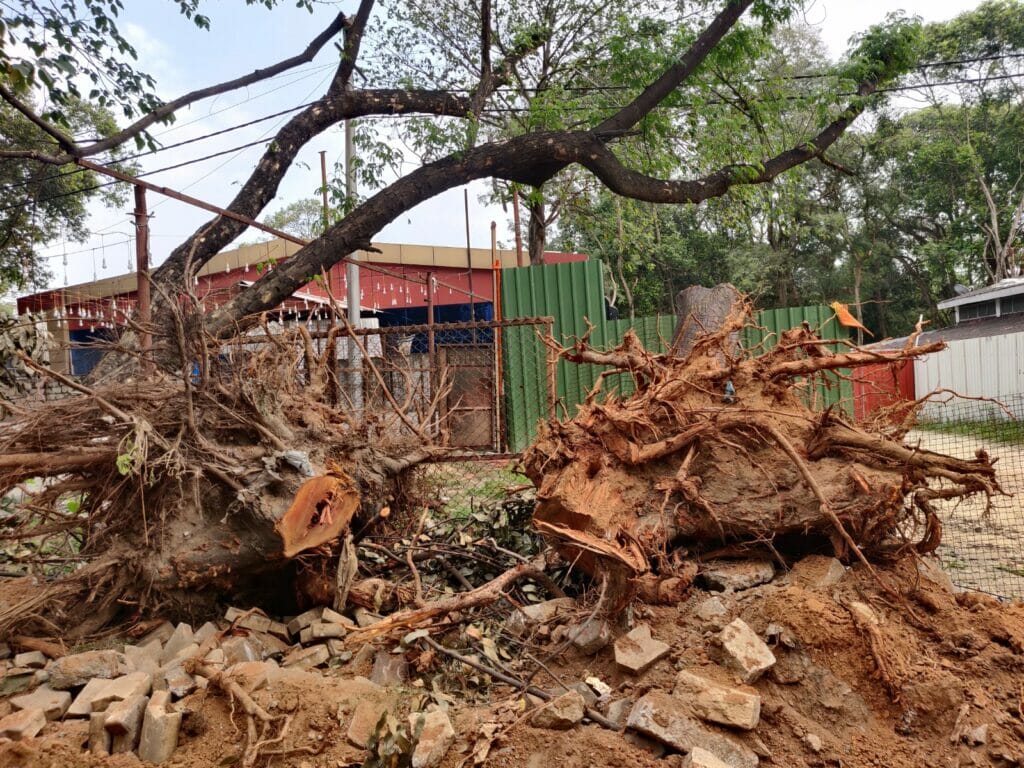
The aforementioned report also highlights that a public notice will have to be issued calling for citizens’ objections, as they get ten days to file their objections. Public objections were invited through a public notice dated February 7 2022, and the memorandum states that “no suggestion/objection was received from the public within the stipulated time.”
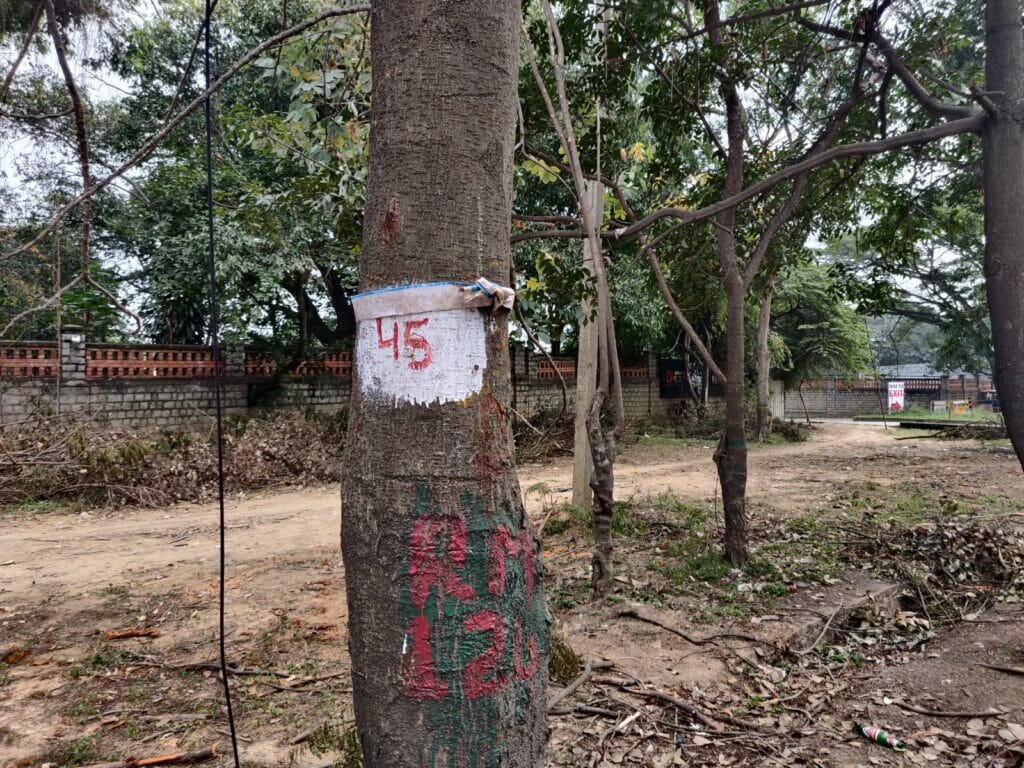
However, a recent report mentions that BBMP’s forest cell received 50 suggestions, with citizens objecting to the loss of green cover and the subsequent impact on water bodies located within Palace Grounds.
The Tree Expert Committee (TEC), which assesses the application, should seek justifications for the projects that need tree-felling. “TEC should ask if road widening is at all required,” Dattatraya T Devare, trustee of Bangalore Environment Trust (BET), had told the reporter.
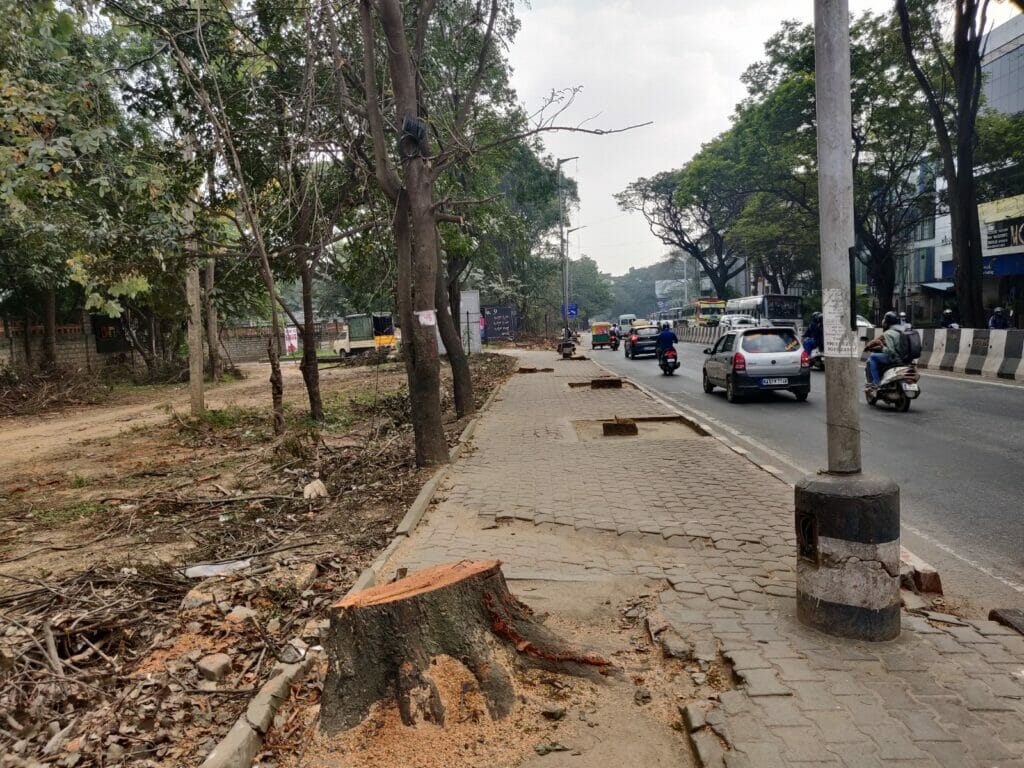
The same stretch on the other side (that borders Sadashivanagar) still has a row of thick, tall trees, the canopies of which give shade to commercial complexes, residences, and nearly half of this road.